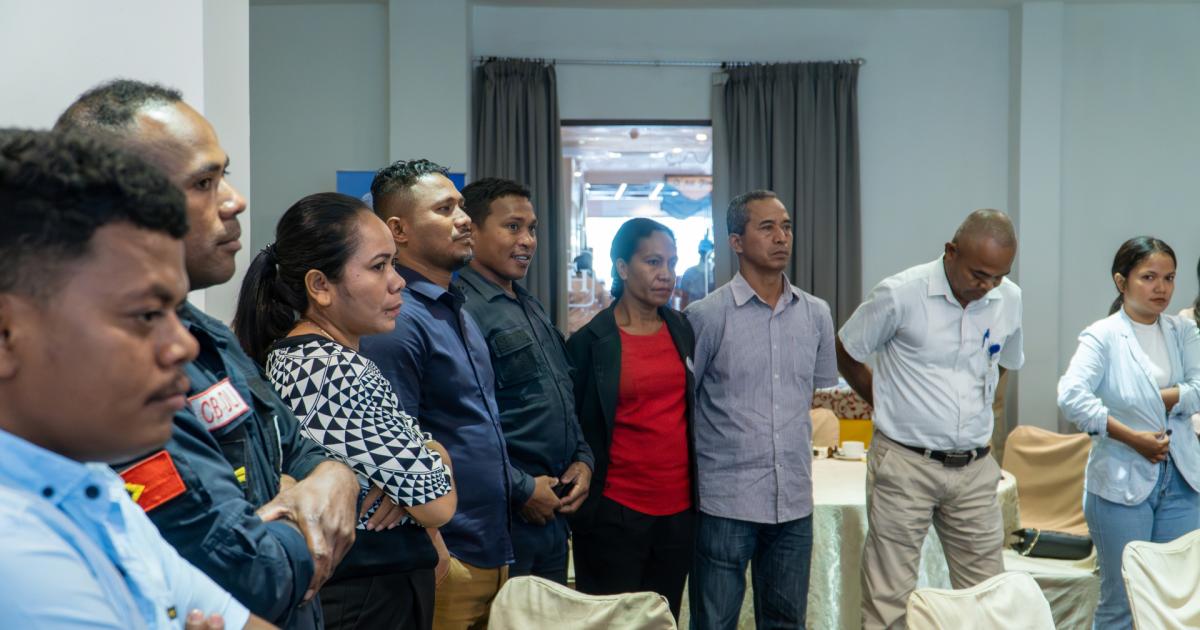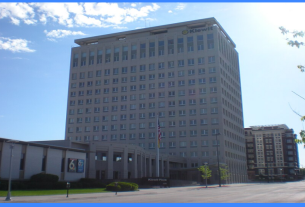Dili – The International Organization for Migration (IOM), together with the United Nations Children’s Fund (UNICEF), organized a workshop on 15 November for humanitarian actors from diverse institutions, addressing the critical need to mainstream protection principles during emergency responses.
Exposure to protection risks in emergency settings as a result of sudden and slow-onset hazards has evidently increased in Timor-Leste in the past years. There is a growing understanding that emergencies intensify the preexisting vulnerabilities of migrants, women and children to different forms of abuse, including forced labour, gender-based violence (GBV), human trafficking and violation of children’s rights.
Peppi Kiviniemi-Siddiq, Senior Regional Protection Specialist at IOM Regional Office for Asia and the Pacific, highlighted the importance of the workshop. She noted that “the consensus was clear that there is a need for intensified efforts in operationalizing identification and referral pathways to prevent vulnerable people, including victims of trafficking and gender-based violence survivors, from being overlooked in emergencies.”
The workshop was followed by critical discussions on better addressing the challenges in the protection risks during emergencies. Through this event, the humanitarian actors representing government agencies and civil society organizations put forward an action plan, which provided recommendations on increased inter-agency coordination on referral pathway mechanisms to prevent and protect at-risk communities.
Key government institutions in attendance included the Civil Protection Authority (CPA), the Ministry of Solidarity and Social Inclusion (MSSI), the Secretary of State for Equality Inclusion (SEI), the Ministry of Interior National Directorate for Community Conflict Prevention, as well as the National Police of Timor-Leste’s (PNTL) Vulnerable People Unit. Additionally, NGOs such as the Psychosocial Recovery & Development in East Timor (PRADET), The Timor-Leste Red Cross (Cruz Vermelha de Timor-Leste/CVTL) and the Communication Forum for Women in Timor-Leste (Komunikasaun ba Feto Timor Loro Sa’e/FOKUPERS) actively participated in the training.
“Drawing examples from the past natural hazards in Timor-Leste, this training taught us that we must respond to emergencies with tailored measures for children and women. We now recognize the importance of careful reintegration mechanism, taking into account specific needs and safety,” said Neda Maria Luisa da Cruz, Child Protection Staff at MSSI.
Silveiro Da Silva De Araújo, FOKUPERS Staff, emphasized that “the different roles of each agency play in the referral pathway mechanism can prevent and protect gender-based violence and gender inequality, ultimately mainstreaming the protection principles in emergencies. I hope our efforts continue beyond today, ensuring collective assistance to victims irrespective of our different roles and capacities.”
Protection mainstreaming is the process of incorporating protection principles and promoting meaningful access, safety and dignity in humanitarian action while making sure that response is participatory and that it is accountable to the people IOM seeks to assist.
The workshop is part of the Addressing Protection Risks in Humanitarian Settings in Timor-Leste and Papua New Guinea, a regional joint initiative led by IOM and UNICEF and funded by the U.S. Agency for International Development’s (USAID), Bureau for Humanitarian Assistance (BHA).
***
For more information, please contact:
Muhammad Maulana Iberahim, Media and Communications, IOM Timor-Leste, at [email protected]



